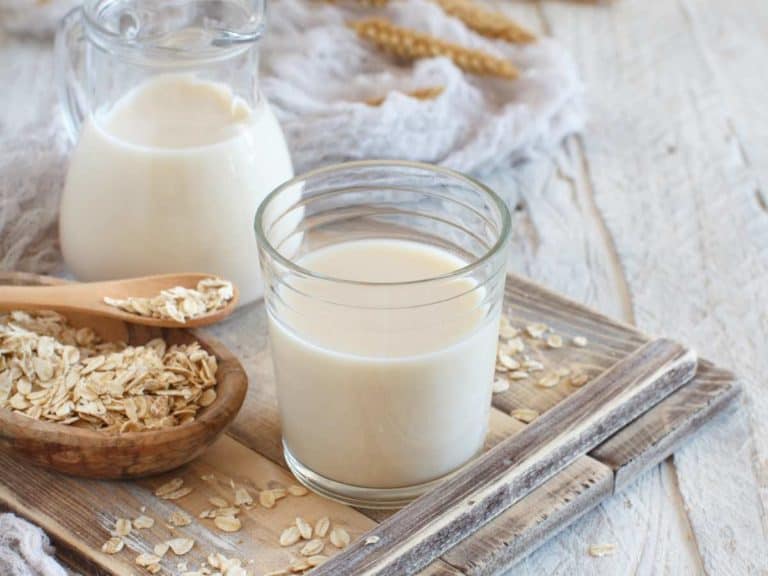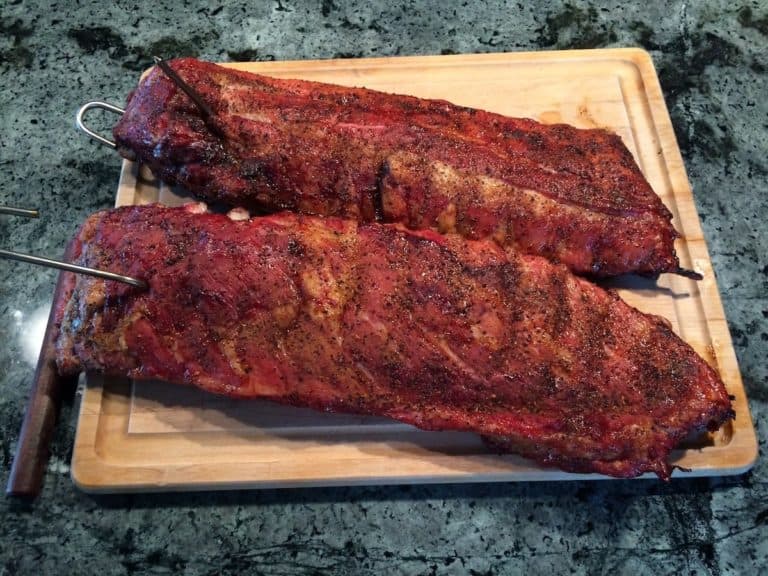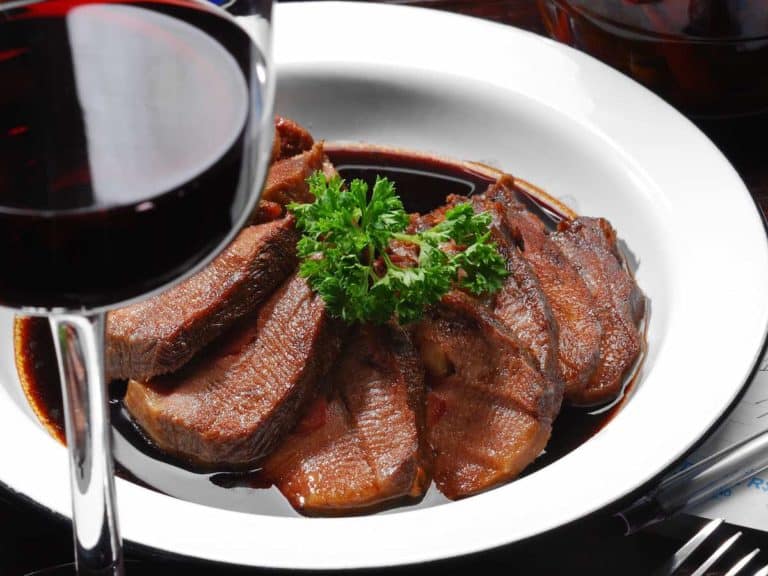10 Vegan Substitutes for Veal According to Science
Veal is a slice of popular meat that fits well in many dishes. If you’re a vegan, it can be tricky to navigate veal-based meals. You are limited on what you can ingest as a protein source. Luckily, there are many excellent substitutes for veal in the vegan world. What are some of the best ones you can utilize in your recipes as a source of protein?
Read on to learn about some of the best protein replacements for veal if you’re a vegan.
Just because you can’t eat meat doesn’t mean you have to miss out on a dish. There’s a lot of options for you. Although most won’t taste like veal, you can utilize similar spices and sauces to make the vegan version just as tasty.
1. Tofu
Tofu is a classic protein substitute for vegetarians and vegans alike.
This food is made out of condensed soy milk, pressed and shaped into a block. You can buy it in varying levels of firmness, depending on what you’re using it for in a meal. Tofu is great because it absorbs the flavor of whatever it’s paired with in a meal.
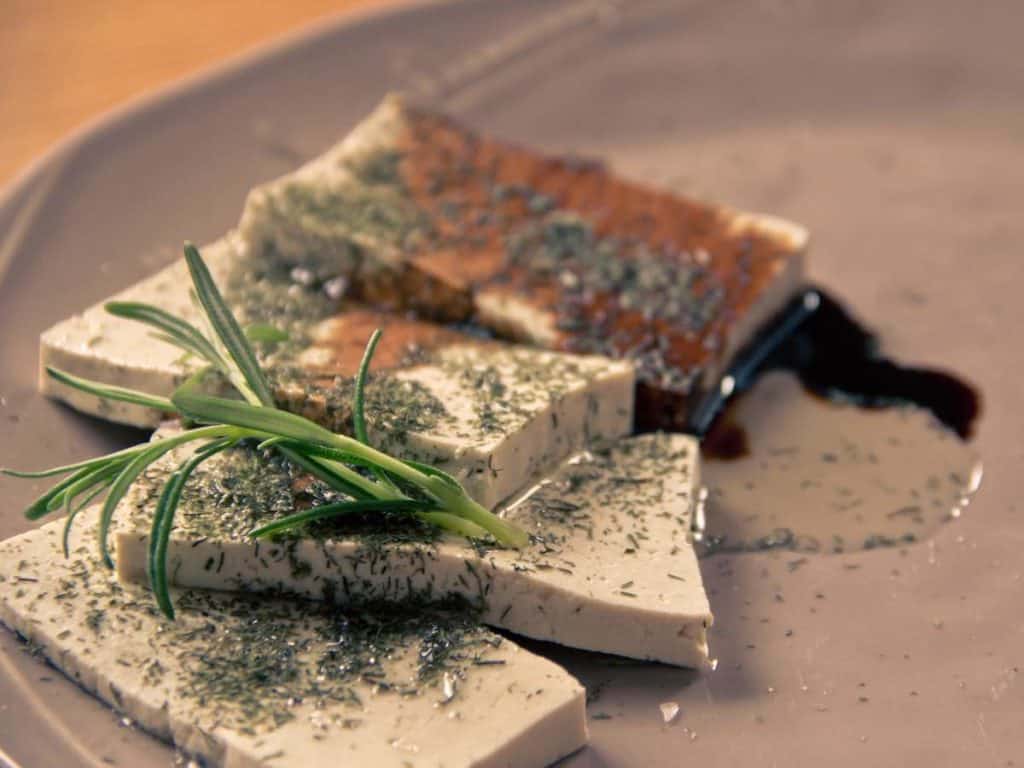
Some of the nutritional benefits you can find in a 3.5-ounce block of tofu include:
- Protein: 8 grams of protein are present in this singular block.
- Fiber: There’s a gram of fiber, enough to help keep your system going.
- Vitamins: There are many excellent vitamins in tofu, including zinc and calcium.
- Calories: There’s a lot of nutrients inside tofu, but only about 80 calories. It’s packed with goods.
All of these are beneficial to any vegan, and tofu can be cooked in many ways.
Because tofu absorbs the flavor it’s put with, you can utilize the same sauces and spices as you would in a veal dish. It might not have a meaty flavor, but you can make it taste somewhat similar. The texture is close to meat if you cook it properly and purchase a firmer tofu option. It’s also affordable and exists in every grocery store.
Related Article: My Favorite Vegan Substitutes for Lamb
2. Tempeh
Tempeh is a unique product that many vegans have never heard about, but it’s a versatile ingredient that every plant-based individual should know about.
Tempeh is also made from soybeans, though several varieties have additional flavorings that affect the taste. It’s more fermented than tofu is, so it gives a different taste.
Some of the nutritional benefits you’ll find with a 3-ounce serving of tempeh include:
- Protein: 15 grams of protein sit inside each serving.
- Vitamins: Tempeh has a healthy dose of vitamins inside, such as calcium and riboflavin.
- Calories: There’s a mere 162 calories per 3-ounces.
These will all benefit a vegan.
Tempeh is an exciting ingredient that can be a lot of fun to work with. If you need to find a replacement for veal, tempeh is one of the first ingredients you should look to as a vegan. It’s a wonderful supplement.
3. Seitan
Next up is seitan, yet another great protein substitute that vegans often miss out on. This ingredient is made of gluten found inside wheat. It’s like bread that has been condensed and broken down into the most basic form of nutritional value. The texture works well as a veal substitute in any recipe.
Some of the nutritional benefits you’ll find with one serving of seitan include:
- Protein: 21 grams of protein sit inside each serving.
- Vitamins: There are vitamins inside seitan, such as iron and phosphorus.
- Calories: There are 104 calories per serving inside seitan.
This product is very protein-dense.
With seitan, you can make your own or invest in it from the grocery store. It’s a malleable ingredient that can be shifted to fit your taste. If you’ve never tasted seitan before, this could be an excellent opportunity for you.
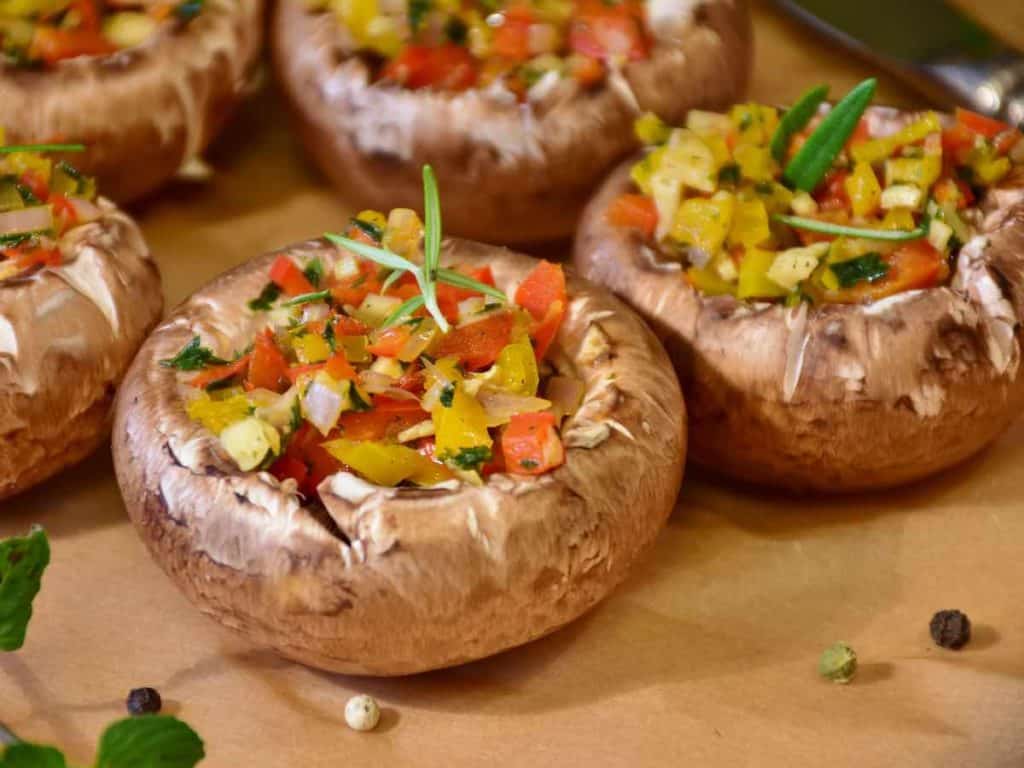
4. Mushrooms
Mushrooms fit into many different meals. Unlike many believe, they’re versatile vegetables that work as more than just a side dish. They’re an excellent meat substitute and will have no trouble at all holding their own in the place of veal. You can grill them, bake them, or even fry them for maximum flavor.
Some of the nutritional benefits you’ll find with a 96-gram cup of mushrooms include:
- Protein: 3 grams of protein sit inside each serving.
- Vitamins: Mushrooms have potassium, magnesium, and selenium, among other things.
- Calories: There are 21 calories per cup of mushrooms.
All of these provide a delicious addition to any meal that previously required meats such as veal.
There are so many different types of mushrooms to choose from, so you can experiment and see which one you like best.
Mushrooms can be grilled, baked, and even fried if you want something different. They have a lot fewer calories than veal, so you can eat more if you want to during your meal. Mushrooms are affordable and found in every produce section.
5. Black Beans
Black beans are protein-packed beans that can fit inside almost any recipe.
If you buy them unsalted, they resemble tofu in the way that they absorb any flavor they’re placed next to in a dish. You can find them canned, dried, or precooked. They’re affordable, and there’s so much you can do with black beans if you know how to work with them.
Some of the nutritional benefits you’ll find with a half-cup of black beans includes:
- Protein: 8 grams of protein sit inside each serving.
- Vitamins: Vitamin A, Calcium, and Iron all sit inside a serving of black beans.
- Calories: There are about 113 calories inside a half-cup of black beans.
There’s a lot to gain from deciding to ingest black beans as the centerpiece of your meal.
Black beans can be eaten in so many formats. You can mask them and shape them into whatever you want, or you can eat them whole. They’re delicious with seasoning and can pair with sauces that would typically complement veal. You can mix them with other supplement options for the best possible combos.
6. Lentils
Lentils are small beans that come in a tiny lens shape. They pack a ton of nutritional value inside a tiny shell and can be added to almost any dish.
With a little bit of work, lentils can work as an excellent replacement for veal. You can add spices and dressings to make them closer to veal in both their taste and texture.
Some of the nutritional benefits you’ll find with one cup of lentils includes:
- Protein: 18 grams of protein sit inside each serving.
- Vitamins: Folate, iron, and magnesium are just a few of the vitamins you can locate inside lentils.
- Calories: There are about 230 calories per cup of lentils.
All of these will benefit a vegan well when a veal replacement needs to appear in a dish.
Lentils can be mashed and mixed with your favorite seasonings to provide the perfect taste. They pair well with sauces, and can even mix with other supplements to provide an all-around great experience.
Lentils are affordable, and you can find them on the shelves of any grocery store you find yourself inside. They’re one of the best vegan veal substitutes out there.
7. Chickpeas
Chickpeas are versatile beans that, along with black beans, provide a solid nutritional structure for vegans and vegetarians to ingest. You can find them canned, inside bags, or fully cooked in a grocery store. With a little effort, you can make the texture somewhat resemble veal.
Some of the nutritional benefits you’ll find with one cup of chickpeas includes:
- Protein: 14.5 grams of protein sit inside each serving.
- Vitamins: Copper, folate, and iron are just a few of the vitamins you’ll find in chickpeas.
- Calories: There are about 269 calories per cup of chickpeas.
All of these help chickpeas to be one of the best substitutes for vegans for veal in a dish.
This bean is one of the most nutrient-dense products you can utilize as a vegan. You can mash them, eat them whole, boil them, and so much more. If you want something versatile, tastes great, and is good for you, chickpeas should be your go-to.
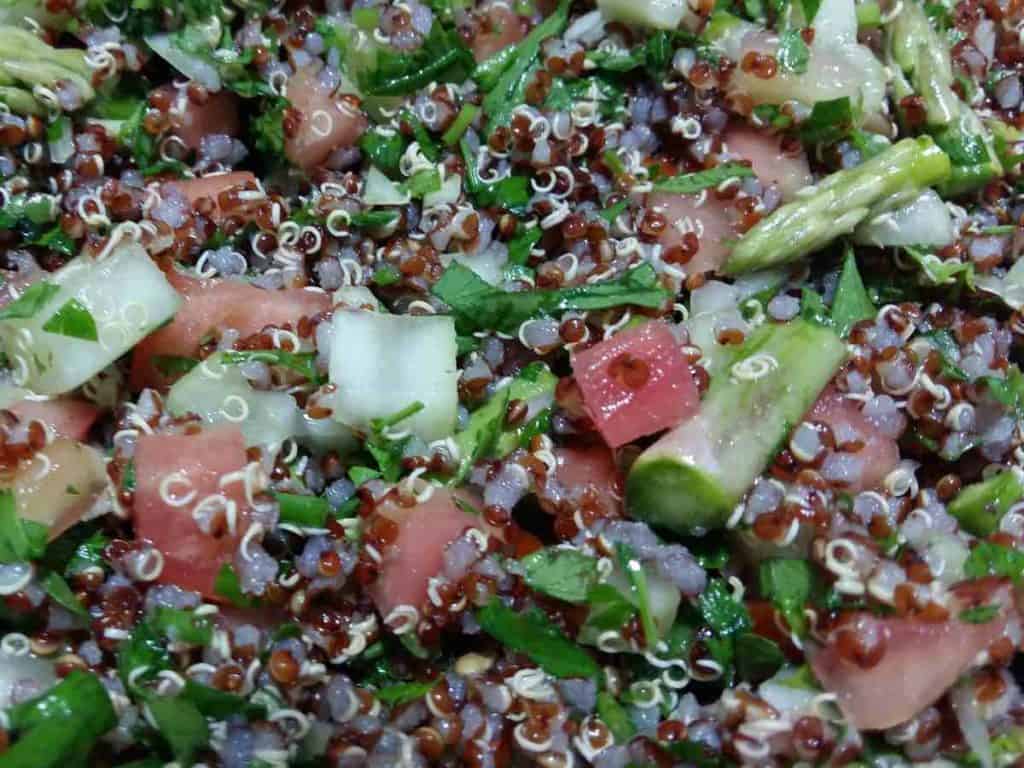
8. Quinoa
Quinoa is another protein substitute. This rice-like substance is extremely hearty and provides ample protein in place of veal in anything you cook.
Although it can’t shape into a texture that resembles veal, it can still provide a similar level of nutrients. You can walk away from the meal feeling satisfied with what you ate.
Some of the nutritional benefits you’ll find with a one-cup serving of quinoa include:
- Protein: 8 grams of protein sit inside each serving.
- Vitamins: Magnesium, iron, and potassium flood this food with nutrients.
- Calories: There are 222 calories inside one cup.
Vegans will gain all of these benefits and more, just from a serving of the food. Quinoa has some tasty, healthy aspects that come along with it on a dinner plate.
Although it’s tricky to make the texture of quinoa match anything close to what veal is, you can spice up the food with seasonings to make it taste somewhat similar. It’s a worthy substitute with the protein it provides and the vitamins it will give to anyone who eats it as a substitute in a meal.
9. Green Peas
Green peas are not anybody’s favorite. However, if you know how to manipulate them properly, green peas can make for a stunning veal substitute inside a meat-based dish. These tiny green vegetables have a shocking nutritional value and can turn into an unrecognizable delicacy with a little work.
Some of the nutritional benefits you’ll find with a half-cup serving of green peas include:
- Protein: 4 grams of protein sit inside each serving.
- Vitamins: There are lots of great vitamins inside peas, including Vitamins A, K, and C.
- Calories: There are only 62 calories in a half cup of peas.
All of these are great for vegans who want a healthy change and want to avoid veal.
With peas, you can mash them or keep them whole when replacing meat in a dish. There’s a ton of seasoning you can add to make them taste just as good as any piece of veal. If you like green peas, this is an excellent opportunity to work with them in a whole new way.
10. Cauliflower
Last up on this list is cauliflower. Many have heard of this vegetable, but not many would consider it when thinking of a substitute for veal. However, if you know how to cook it, cauliflower can serve as an excellent alternative for this controversial meat. It can be great.
A few of the excellent nutritional benefits you can anticipate with one cauliflower head includes:
- Protein: There’s a solid 11 grams of protein in a cauliflower.
- Vitamins: Many vitamins pack a cauliflower, including Vitamin C, Vitamin D, and Iron.
- Calories: An entire medium head of cauliflower only has about 150 calories.
All of these will give you just as much as veal would inside a meal, and so much more along the way.
There are so many things you can do with cauliflower. Whether you decide to bake it, grill it, mash it, or fry it, it can work as an excellent centerpiece in your veal-based meal.
Cauliflower is wildly versatile, and you can even choose the texture at which you eat it, just like a piece of meat. Cauliflower steaks are popular options for vegetarians and vegans alike.
Conclusion
If you want to make a veal dish as a vegan, there’s no reason to lose hope. There are plenty of vegan substitutes out there, from lentils to tempeh. Even if they don’t taste exactly like veal, there’s a way to transform these unique ingredients into items that will work well inside any dish.
We hope that you can take at least one of our suggestions and use it to transform your next dish. You can enjoy veal meals without worrying about the harm you’re doing to the environment.
If one doesn’t work for you, you can always try one of the other options written here. The kitchen is yours to control!
Read Also: Veal Cutlets with Balsamic Vinegar (or Pork, Turkey, or Chicken Cutlets)
